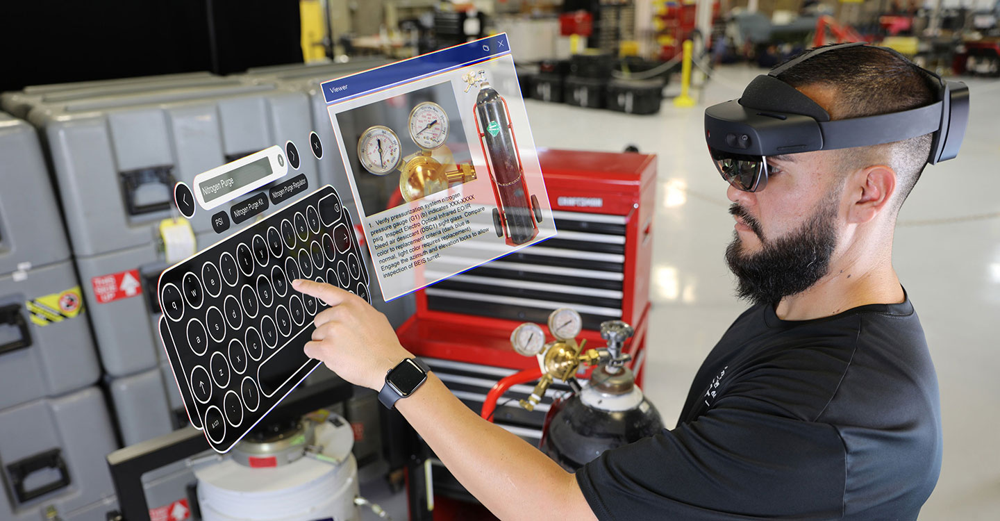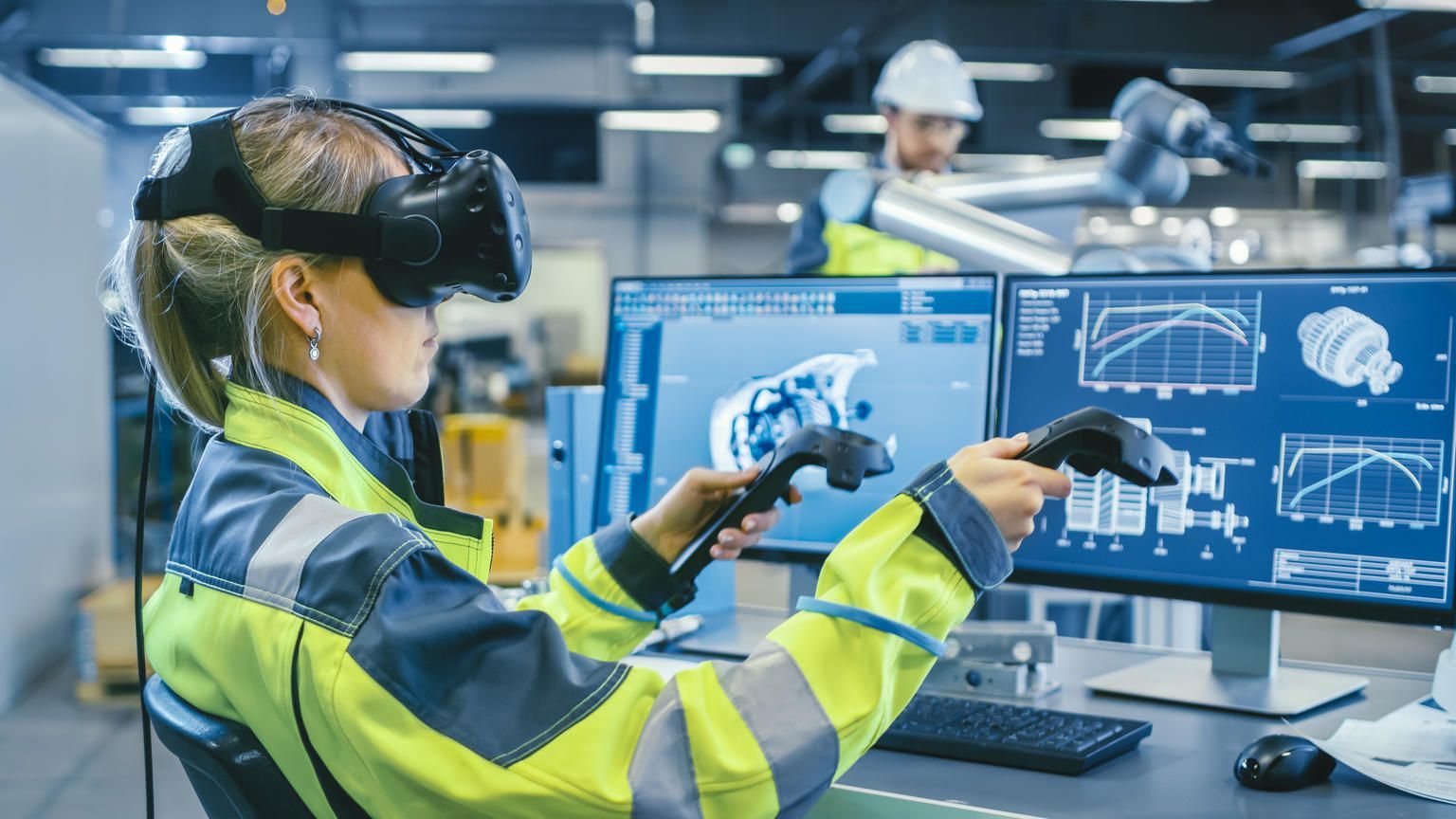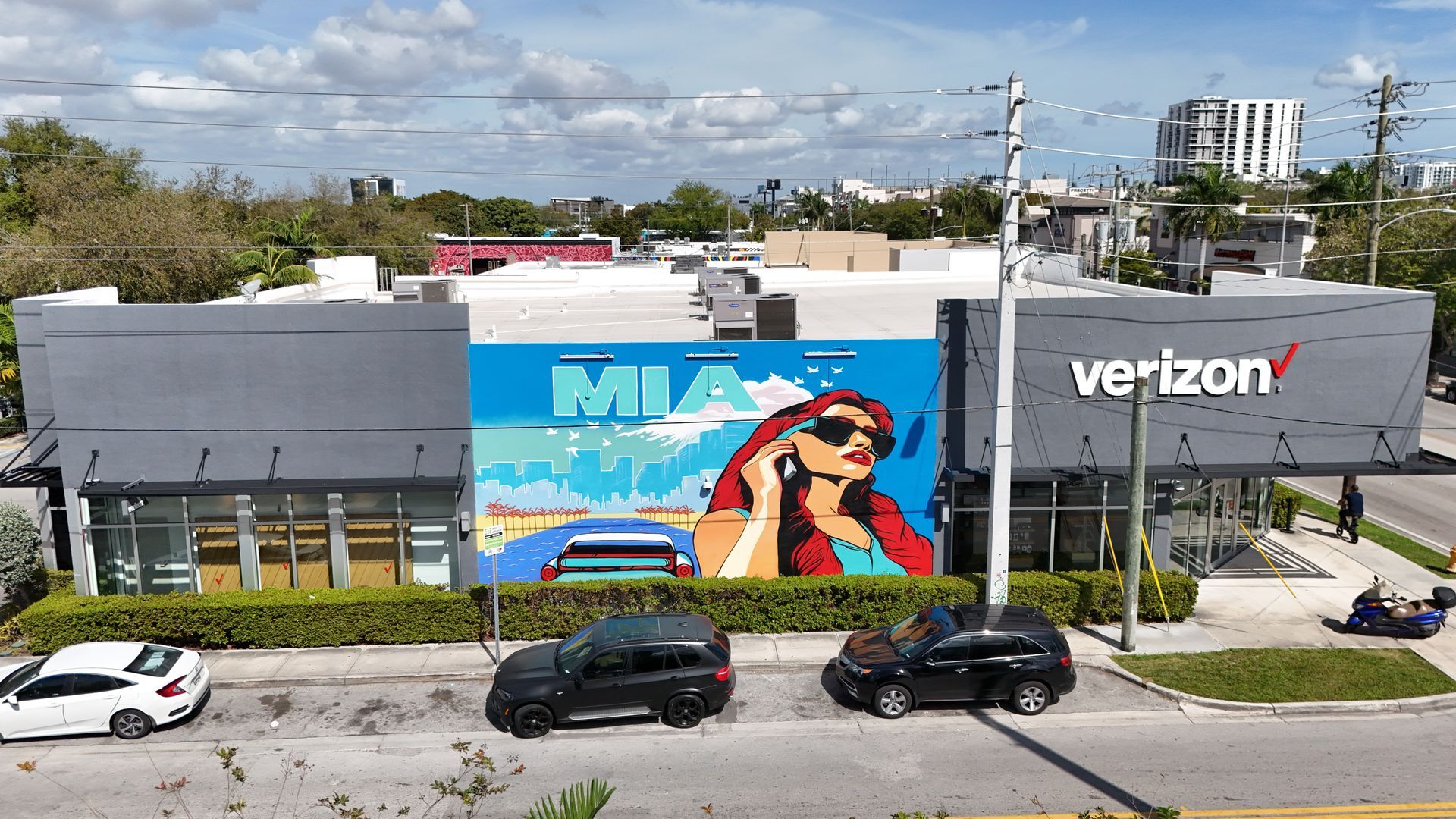Exploring the Innovative World of Digital Twins in Abu Dhabi: A Comprehensive Guide
Introduction to Digital Twin Technology
The Concept of Digital Twins
Digital twin technology, a revolutionary concept in the world of tech, represents a virtual replica of physical entities. This innovative approach has become a cornerstone in modern infrastructure and technology development, offering unparalleled insights and real-time data analysis. In the context of Abu Dhabi, a city known for its forward-thinking and technological advancements, digital twins play a critical role in shaping the future of urban living and industrial efficiency.
Evolution of Digital Twins in the Tech World
Tracing back its roots, the concept of digital twins has evolved significantly over the years. Initially used in NASA's space missions for simulation purposes, it has now permeated various sectors, including manufacturing, healthcare, and urban planning. Abu Dhabi, in its quest to become a smart city, has embraced this technology, integrating it into its core developmental strategies to enhance operational efficiency and foster innovation.
Digital Twin in Abu Dhabi: An Overview
Abu Dhabi's Technological Landscape
Abu Dhabi stands at the forefront of technological innovation in the Middle East. The city's commitment to integrating advanced technologies like digital twins into its infrastructure is evident in its strategic plans and investments. By adopting digital twin technology, Abu Dhabi aims to enhance its urban planning, resource management, and service delivery, setting a benchmark for other cities in the region.
The Role of Digital Twins in Abu Dhabi's Development
Digital twins in Abu Dhabi are not just a technological tool but a transformative element in the city's development. They enable planners and decision-makers to simulate and analyze various scenarios, leading to more informed and effective policies. Whether it's in managing traffic flow, optimizing energy use, or predicting maintenance needs, digital twins offer a dynamic and holistic approach to city management.
Applications of Digital Twin Technology in Abu Dhabi
Urban Planning and Infrastructure
One of the most significant applications of digital twin technology in Abu Dhabi is in urban planning and infrastructure. By creating virtual replicas of buildings, roads, and utilities, the city can anticipate and resolve potential issues before they occur, ensuring a smoother and more efficient urban environment. This proactive approach not only saves time and resources but also enhances the quality of life for its residents.
Energy and Resource Management
In the realm of energy and resource management, digital twins provide Abu Dhabi with the ability to monitor and optimize the use of its resources. This is particularly important in a region where water and energy conservation are critical. Digital twins help in analyzing consumption patterns, predicting demand, and ensuring sustainable resource management, aligning with the city's vision of environmental stewardship.
Case Studies: Digital Twins Transforming Abu Dhabi
Successful Implementations in Key Sectors
Several key sectors in Abu Dhabi have already witnessed the successful implementation of digital twin technology. For instance, in the transportation sector, digital twins are used to manage traffic flow and public transport systems, reducing congestion and improving commuter experiences. Similarly, in the energy sector, digital twins assist in monitoring and optimizing the performance of renewable energy sources.
Lessons Learned and Future Implications
The lessons learned from these implementations are vast. They highlight the importance of data accuracy, cross-sector collaboration, and continuous innovation. Looking ahead, these experiences pave the way for broader applications of digital twins in other sectors, potentially transforming the entire landscape of Abu Dhabi's economy and urban development.
Integration with Other Technologies
Synergy with IoT and AI
The integration of digital twins with other cutting-edge technologies like the Internet of Things (IoT) and Artificial Intelligence (AI) further enhances their capabilities. In Abu Dhabi, the synergy between these technologies is creating smarter, more responsive urban environments. IoT devices provide real-time data that feed into the digital twins, while AI algorithms analyze this data for predictive insights, leading to more effective decision-making.
Enhancing Data Analytics with Digital Twins
The combination of digital twins and advanced data analytics tools offers a powerful mechanism for understanding complex systems. In Abu Dhabi, this integration is enabling city planners and businesses to gain deeper insights into operational processes, customer behaviors, and market trends, leading to more strategic and data-driven decisions.
The Economic Impact of Digital Twins in Abu Dhabi
Boosting Efficiency and Productivity
The economic implications of digital twin technology in Abu Dhabi are significant. By enhancing operational efficiency and productivity across various sectors, digital twins contribute to cost savings and improved performance. This, in turn, drives economic growth, attracting more investments and fostering a conducive environment for innovation.
Attracting Investments and Innovations
Abu Dhabi's embrace of digital twins has not gone unnoticed in the global arena. It has attracted both local and international investors interested in the potential of this technology. This influx of investments fuels further innovations, ensuring that Abu Dhabi remains at the cutting edge of technological advancements.
Challenges and Solutions in Implementing Digital Twins
Technical and Operational Hurdles
Despite the numerous benefits, implementing digital twins in Abu Dhabi is not without challenges. Technical complexities, data integration issues, and the need for skilled personnel are some of the hurdles faced. To address these, Abu Dhabi is investing in training programs, research and development, and partnerships with tech companies.
Strategies for Overcoming Challenges
Strategic planning and collaboration are key to overcoming these challenges. By involving stakeholders from different sectors, encouraging public-private partnerships, and focusing on continuous learning and adaptation, Abu Dhabi is steadily navigating these obstacles. This collaborative approach ensures the successful and sustainable implementation of digital twin technology.
Digital Twins and Environmental Sustainability
Promoting Green Initiatives
One of the most commendable aspects of digital twins in Abu Dhabi is their contribution to environmental sustainability. By enabling more efficient use of resources, reducing waste, and facilitating the development of green infrastructure, digital twins are helping Abu Dhabi achieve its sustainability goals. This aligns with the city's commitment to environmental stewardship and responsible urban development.
Case Examples in Eco-Friendly Projects
Several eco-friendly projects in Abu Dhabi demonstrate the role of digital twins in promoting sustainability. For instance, digital twins have been used in designing and managing renewable energy projects, optimizing water usage in agriculture, and planning sustainable urban developments. These projects showcase how technology can be harnessed for environmental good.
Future Trends and Predictions
Emerging Innovations in Digital Twins
The future of digital twins in Abu Dhabi looks promising, with emerging innovations on the horizon. Advances in machine learning, augmented reality, and 5G technology are expected to enhance the capabilities of digital twins, offering even more accurate and real-time simulations. These innovations will open up new possibilities and applications, further cementing Abu Dhabi's position as a smart city leader.
Abu Dhabi's Roadmap for Future Tech Integration
Abu Dhabi's roadmap for integrating future technologies with digital twins is clear and ambitious. The city plans to continue its investment in research and development, foster a culture of innovation, and collaborate with global tech leaders. This forward-thinking approach ensures that Abu Dhabi stays ahead of the curve in leveraging technology for sustainable and efficient urban development.
Digital Twins in Education and Workforce Development
Training and Skill Development Initiatives
Recognizing the importance of skilled professionals in driving technological advancements, Abu Dhabi has initiated various training and skill development programs. These initiatives focus on equipping the workforce with the necessary knowledge and skills in digital twin technology, ensuring a steady supply of qualified professionals to support the city's tech-driven growth.
Preparing the Next Generation of Technologists
In addition to professional training, Abu Dhabi is also focusing on integrating digital twin concepts into educational curricula. This approach aims to prepare the next generation of technologists and innovators, fostering a culture of continuous learning and adaptation. By doing so, Abu Dhabi is ensuring that its future workforce is ready to meet the challenges and opportunities of an increasingly digital world.
Public Perception and Community Engagement
Building Awareness and Acceptance
For the successful implementation of digital twin technology, public perception and community engagement are crucial. Abu Dhabi is actively working to build awareness and acceptance of this technology among its residents. Through educational campaigns, public demonstrations, and community involvement, the city is ensuring that its citizens understand and embrace the benefits of digital twins.
Involving Communities in Technological Advancements
Engaging communities in the development and implementation of digital twins is a key strategy in Abu Dhabi. By involving residents in decision-making processes and gathering their feedback, the city is ensuring that the technology aligns with the needs and aspirations of its people. This inclusive approach fosters a sense of ownership and commitment among the community, leading to more effective and sustainable outcomes.
Regulatory Framework and Policy Implications
Governing Digital Twins in Abu Dhabi
The regulatory framework for digital twins in Abu Dhabi is evolving to keep pace with technological advancements. The city is developing policies and guidelines to ensure the responsible and ethical use of digital twin technology, addressing issues related to data privacy, security, and governance. This regulatory environment is essential for fostering trust and confidence in the technology.
Future Policy Directions
Looking ahead, Abu Dhabi's policy directions for digital twins are focused on creating a conducive environment for innovation while ensuring public safety and ethical considerations. The city is exploring ways to streamline regulations, encourage cross-sector collaboration, and foster a supportive ecosystem for tech companies. These policy initiatives are crucial for the continued growth and success of digital twin technology in Abu Dhabi.
Comparative Analysis: Abu Dhabi vs Global Standards
Benchmarking Against International Models
When compared to global standards, Abu Dhabi's approach to digital twins stands out for its ambition and comprehensive implementation. The city's initiatives are on par with, if not ahead of, leading smart cities around the world. By benchmarking against international models, Abu Dhabi is ensuring that its digital twin initiatives are world-class, offering valuable insights and best practices to other cities.
Learning from Global Best Practices
Abu Dhabi is not only benchmarking but also learning from global best practices. The city is actively collaborating with international experts, participating in global forums, and studying successful implementations in other smart cities. This openness to learning and adaptation is a key factor in the success of Abu Dhabi's digital twin initiatives.
Digital Twin in Abu Dhabi: The Road Ahead
Long-Term Vision and Strategic Goals
The road ahead for digital twins in Abu Dhabi is guided by a clear vision and strategic goals. The city aims to leverage this technology to enhance its status as a smart and sustainable city, improve the quality of life for its residents, and drive economic growth. This long-term vision is backed by strong political will and investment, setting the stage for continued innovation and development.
Potential Challenges and Opportunities
While the journey ahead is promising, it is not without potential challenges. Issues such as technology adoption, data management, and public acceptance will need to be addressed. However, these challenges also present opportunities for innovation, collaboration, and growth. Abu Dhabi is well-positioned to navigate these challenges and capitalize on the opportunities presented by digital twin technology.
Conclusion and Final Thoughts
Summarizing the Digital Twin Journey in Abu Dhabi
In conclusion, the journey of digital twin technology in Abu Dhabi is a testament to the city's commitment to innovation, sustainability, and smart urban development. Through strategic investments, collaborative efforts, and a forward-thinking approach, Abu Dhabi has established itself as a leader in the field of digital twins.
Envisioning the Future
As we look to the future, the possibilities for digital twins in Abu Dhabi are limitless. With continuous innovation, strong leadership, and community engagement, the city is poised to further transform its landscape, enhance the quality of life for its residents, and contribute to the global discourse on smart city development. The journey of digital twins in Abu Dhabi is not just about technology; it's about shaping a better, more sustainable future for all.
TALK TO A PRO
We're here to bring your brand to life!
Stay Connected with BrandXR
Thank you for signing up to our monthly newsletter.
Please try again later.
Create Augmented Reality for Free!
Create, Publish, and Measure 3D Augmented Reality Experiences Without Having to Code.










SUPPORT
Detroit
Saudi Arabia
BrandXR. All Rights Reserved. Website designed by Unleash Media.




